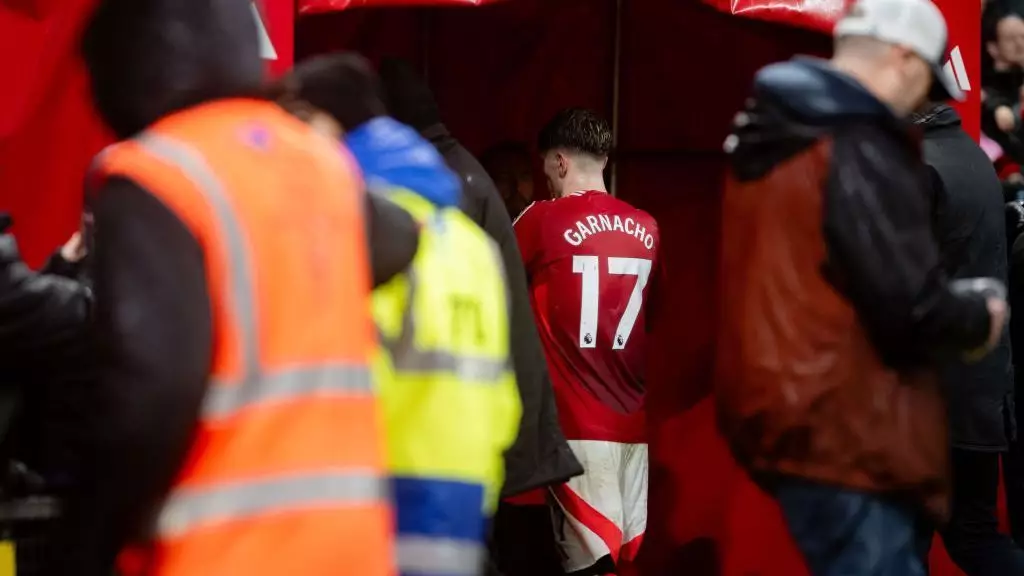In the high-stakes environment of professional football, emotions can run high, particularly when it comes to player performance and team dynamics. A recent incident involving Alejandro Garnacho during Manchester United’s tense match against Ipswich Town highlights the complexities of player relationships within a team. Garnacho, once a star on the pitch, found himself substituted prematurely, leading to an unexpected and concerning reaction—his immediate exit down the tunnel. Such actions raise questions about player morale and cohesion in a squad that is already navigating its share of challenges.
The substitution, a tactical decision made by coach Ruben Amorim in response to a red card issued to a teammate, was understandably motivated by strategy. However, the aftermath was less about tactics and more about player psychology. Garnacho’s decision to walk straight to the dressing room, bypassing the customary acknowledgment of other team members, could suggest feelings of disappointment or frustration. Amorim’s recognition of the incident was muted, but his intention to address it speaks volumes about the necessity of communication in maintaining team spirit. In professional sports, a harmonious locker room can often dictate performance on the field.
Past Relations and Future Conversations
This isn’t the first time Garnacho has encountered scrutiny under Amorim’s management. After being dropped for a crucial match against Manchester City last December, Garnacho had to work diligently to regain his place in the starting lineup. This prior history makes his recent actions even more poignant. Amorim’s upcoming conversation with Garnacho about the incident could be pivotal. It is essential for restoring trust and understanding, not just for Garnacho, but for the entire team. Clear communication can prevent misunderstandings and foster a supportive atmosphere that is vital for performance.
Amorim’s reasoning behind substituting Garnacho reflects the delicate balance of team strategy versus individual prowess. Recognizing that at times strategic decisions come at the cost of a player’s individual contribution—especially a player as quick and capable as Garnacho—highlights the competing priorities a coach must navigate. The discussion about his choice to replace an asset who could maintain one-on-one challenges indicates a willingness to adjust game plans for broader team control. Yet, this balance is tenuous; losing a key offensive player can have ripple effects on overall performance and morale.
Ruben Amorim is poised to address the ramifications of the Garnacho incident, an essential step in ensuring team cohesion. The emotional landscape of professional football requires adept navigation; a single incident can influence team dynamics, player confidence, and public perception. As the season progresses, how Amorim communicates with Garnacho could serve as a blueprint for effective leadership—ultimately affecting Manchester United’s trajectory in a competitive league. In an environment where mental resilience is just as critical as technical ability, fostering healthy relationships within the squad is imperative for long-term success.


Leave a Reply